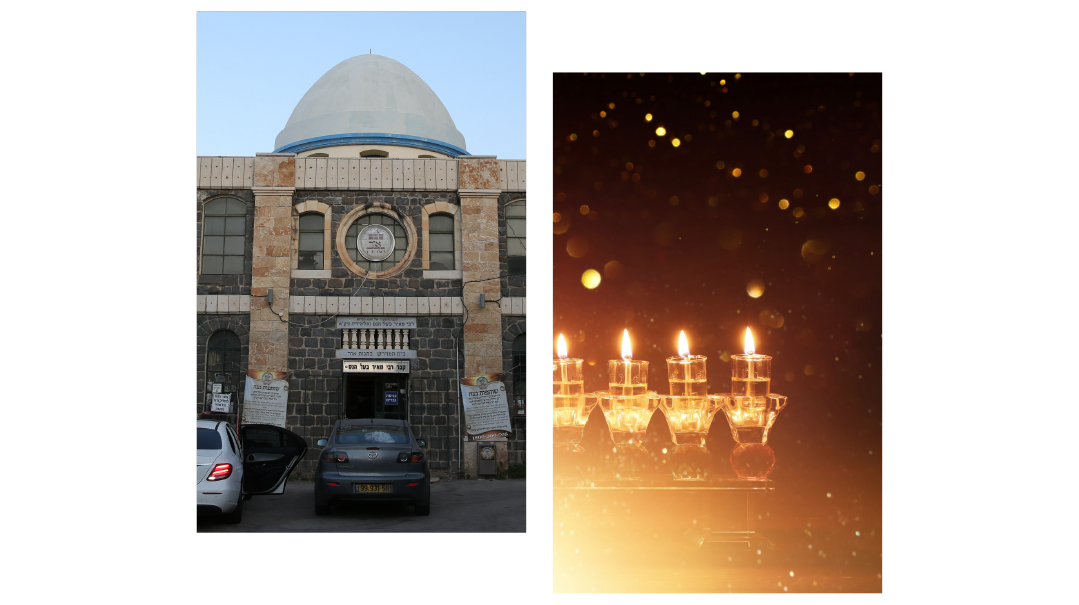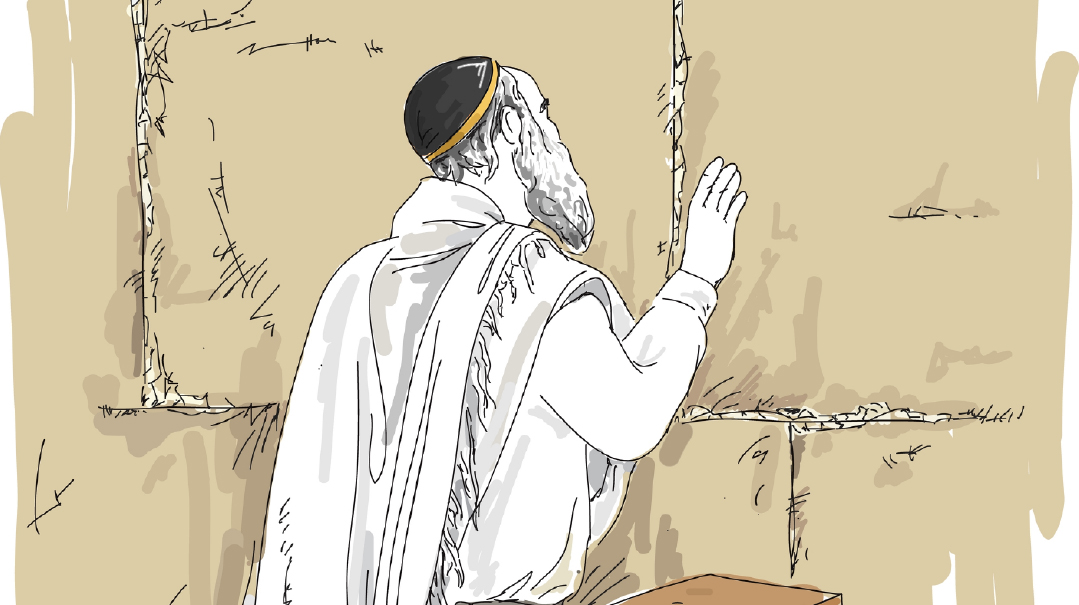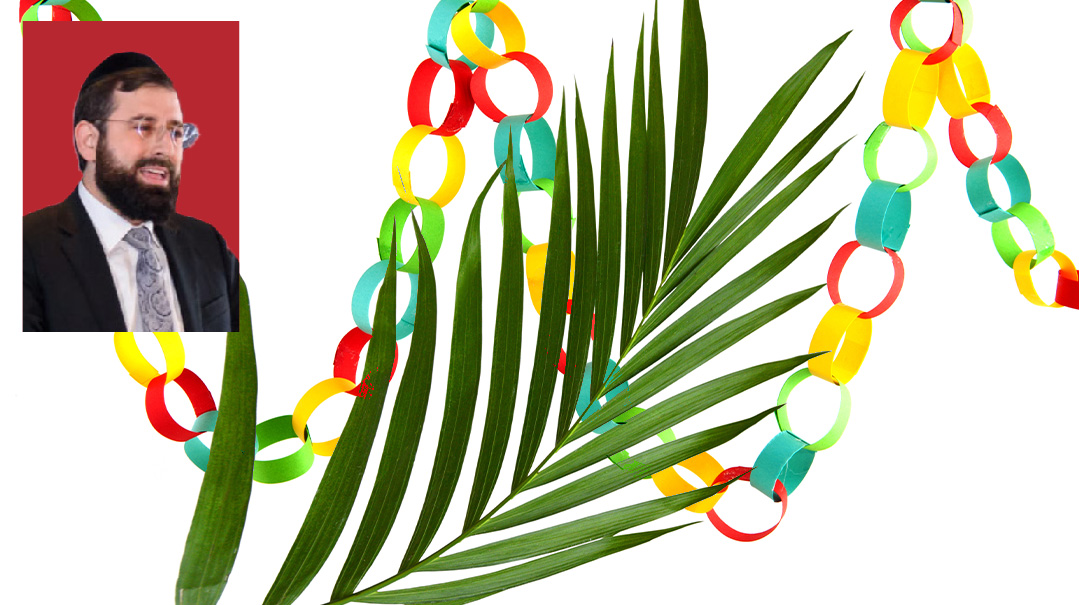Today’s the Day
| September 5, 2023Why is the generic term “hayom” taken to mean Rosh Hashanah?
The term “hayom,” which means “today,” is used throughout Tanach to mean a momentous event. An exploration of how this word is used teaches us something important about the season now upon us. Don’t put off until tomorrow what you can do today, in the words of one wise man. Speaking of which, “tomorrow” has its own negative associations, as we shall see…
1.
Sefer Iyov (1:6) says, “Vayehi hayom vayavo’u bnei haElokim l’hisyatzev al Hashem— And it was the day and the Angels came to stand before Hashem.” The term “the day” is ambiguous— which day? Says Rashi: “Rosh Hashanah.”
Every year, the parshah preceding Rosh Hashanah is parshas Nitzavim. The first pasuk in Nitzavim reads, “Atem nitzavim hayom kulchem — All of you are standing this day.” Many explain (see Pardes Yosef) that this refers to Rosh Hashanah, when we all stand in fear and awe before Hashem. Thus, this parshah is always read on the Shabbos preceding Rosh Hashanah.
Likewise, in Melachim Beis (4:8), the pasuk says, “Vayehi hayom vayaavor Elisha el Shunem — and it was on this day and Elisha went to Shunem.” The Zohar comments, “Any place where it says ‘vayehi hayom,’ it is Rosh Hashanah.” An obvious reference is in Tehillim (119:91): “L’mishpatecha amdu hayom ki hakol avadecha — For Your judgment, we stood this day, for we are all Your servants.” The frame of reference is clearly Rosh Hashanah. In fact, Rav Yosef Chaim Sonnenfeld says, the gematria of this pasuk is the same as that of Rosh Hashanah!
But why is this? Why is the generic term “hayom” taken to mean Rosh Hashanah?
2.
The Gemara (Shabbos 153a) tells of a discussion between Rabi Eliezer and his students. The students questioned a teaching of Rabi Eliezer found in Pirkei Avos (2:10), that one should repent the day before he dies.
The students asked, “How can one know on which day he will die?”
Rabi Eliezer responded, “One should do teshuvah every day, for perhaps he’ll die tomorrow.”
We see from here that teshuvah should not be limited to any specific time, but rather should become a daily exercise. In fact, the Gemara (Berachos 19a) tells us, “If one sees a talmid chacham sin at night, don’t speculate about him the next day; perhaps he did teshuvah.” The Gemara responds to this comment, “Perhaps he did teshuvah? He certainly did teshuvah!”
Once again, we see that the proper way to live is to be doing teshuvah on a regular basis. We find throughout sifrei hakodesh that teshuvah is to become part and parcel of daily living. Mishnah Berurah (239:9) writes that one should do teshuvah prior to going to bed at night. Reishis Chochmah (Shaar Hakedushah 72) writes that one should repent before eating. Nefesh HaChaim discusses doing teshuvah prior to learning Torah.
The basic principle is that teshuvah should become a constant companion in our lives. We can suggest that Rosh Hashanah is called “hayom” for this reason. The quality of repentance that characterizes Rosh Hashanah should also define each and every other day. When is Rosh Hashanah? Regardless of what the calendar says, it is today!
3.
Although Rosh Hashanah is celebrated as the first day of creation, it also marks a terrible catastrophe— the sin of the Eitz Hadaas. Adam and Chavah were created on Rosh Hashanah and sinned that day as well. In fact, the Gra (Maaseh Rav 210) advises against eating grapes on Rosh Hashanah. He gives no reason for this, stating only that it is al pi sod; but Imrei Shmuel suggests that it is because, according to one opinion, the fruit of the sin of the Eitz Hadaas was the grape.
This sin had devastating ramifications. Tosafos Chaim (Shemini) writes that the sin “sullied” the last two letters of the Sheim Havayah (vav, hei), as well as the last two letters of the Sheim Elokim (yud, mem). Combining the affected letters spells the word “hayom.”
After the sin of the Eitz Hadaas, Adam and Chavah hear Hashem calling: “Vayishme’u es kol Hashem Elokim mis’halech bagan l’ruach hayom — and they heard the voice of Hashem Elokim resonating through the garden to the wind of the day.” Says the Skolya Rebbe, “Hashem Elokim, both of the names that were damaged, were calling out, ‘Hayom! Look at these four letters! See what has happened to them!’ ”
Rosh Hashanah is called hayom because, just as those four letters were harmed on that day, so too will they be repaired on that day.
4.
Midrash Rabbah on parshas Bo says that every occurrence of the word “v’atah— and now” alludes to the principle of teshuvah. The source for this is in parshas Eikev (Devarim 10:12): “V’atah Yisrael, mah Hashem Elokecha sho’eil mei’imach, ki im l’yirah es Hashem… [And now Yisrael, what does Hashem ask of you other than to fear Him….]”
While it’s easy to see how that verse is associated with teshuvah, why do the words “and now,” in particular, connote teshuvah?
Mesillas Yesharim, in the chapter on zerizus, discusses how one can be intellectually aware of a proper course of action yet fail to follow it through. Why? Not because he doesn’t recognize its importance; he does recognize it, but he is simply too lazy to act upon that knowledge.
In Megillas Rus, we read that Rus approaches Boaz, per Na’ami’s instructions. She returns to Na’ami and expresses her concern that Boaz may not marry her. Na’ami soothes her — “for this man will not be quiet until the matter is completed today.” Boaz does, in fact, marry Rus, and, from that union the dynasty of Dovid Hamelech was born. The following day, Boaz dies. The Chofetz Chaim comments, “We see from here how critical it is to act immediately upon inspiration. Had Boaz delayed just one day,Dovid Hamelech would have never come into existence.”
Conversely, there’s another nation who’s always associated with machar — tomorrow. In parshas Beshalach (17:9), Moshe instructs Yehoshua to wage battle against Amalek: “Machar ani omed al rosh hagivah — Tomorrow I will stand atop the hill.”
In Shmuel Alef (30:17): “Vayakeim Dovid mei’haneshef v’ad ha’erev l’macharasam — And Dovid attacked them from dawn until evening of the following day.”
In Megillas Esther as well: Esther tells Achashveirosh and Haman, “If you come to the feast I will prepare tomorrow…” Later, when the Jews are granted license to kill their enemies, Esther requests that they be given “tomorrow” to hang Haman’s ten sons.
We see that Amalek is associated with tomorrow. But we, the Jewish People, are the nation of hayom — today. Because a Jew knows that to really make a difference, action must be taken immediately.
Rosh Hashanah is called “hayom” because it is the seminal day of teshuvah. It is the day when the clarion call “Hayom!” rings out, behooving us all to implement an immediate course of teshuvah.
(Originally featured in Mishpacha, Issue 977)
Oops! We could not locate your form.







